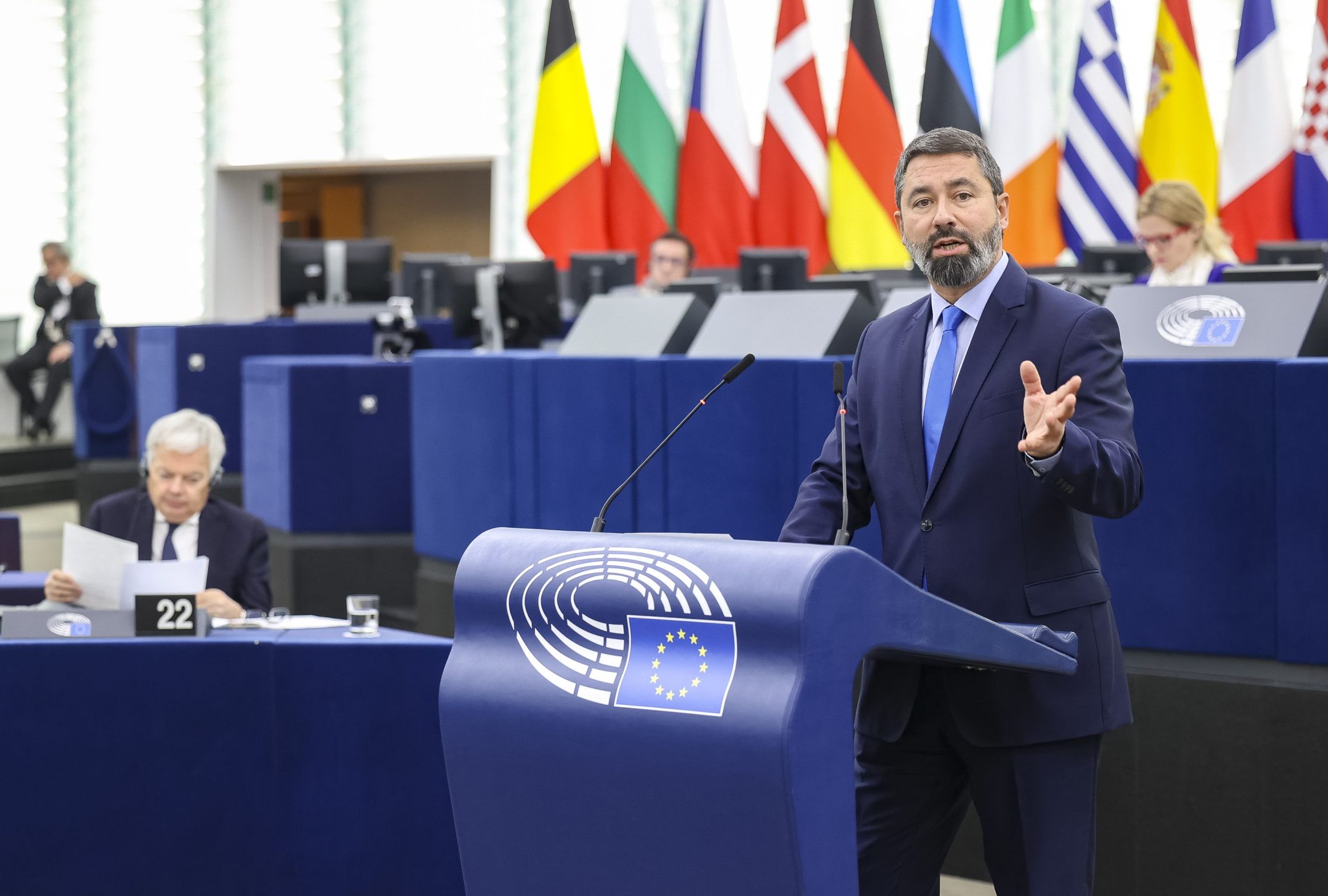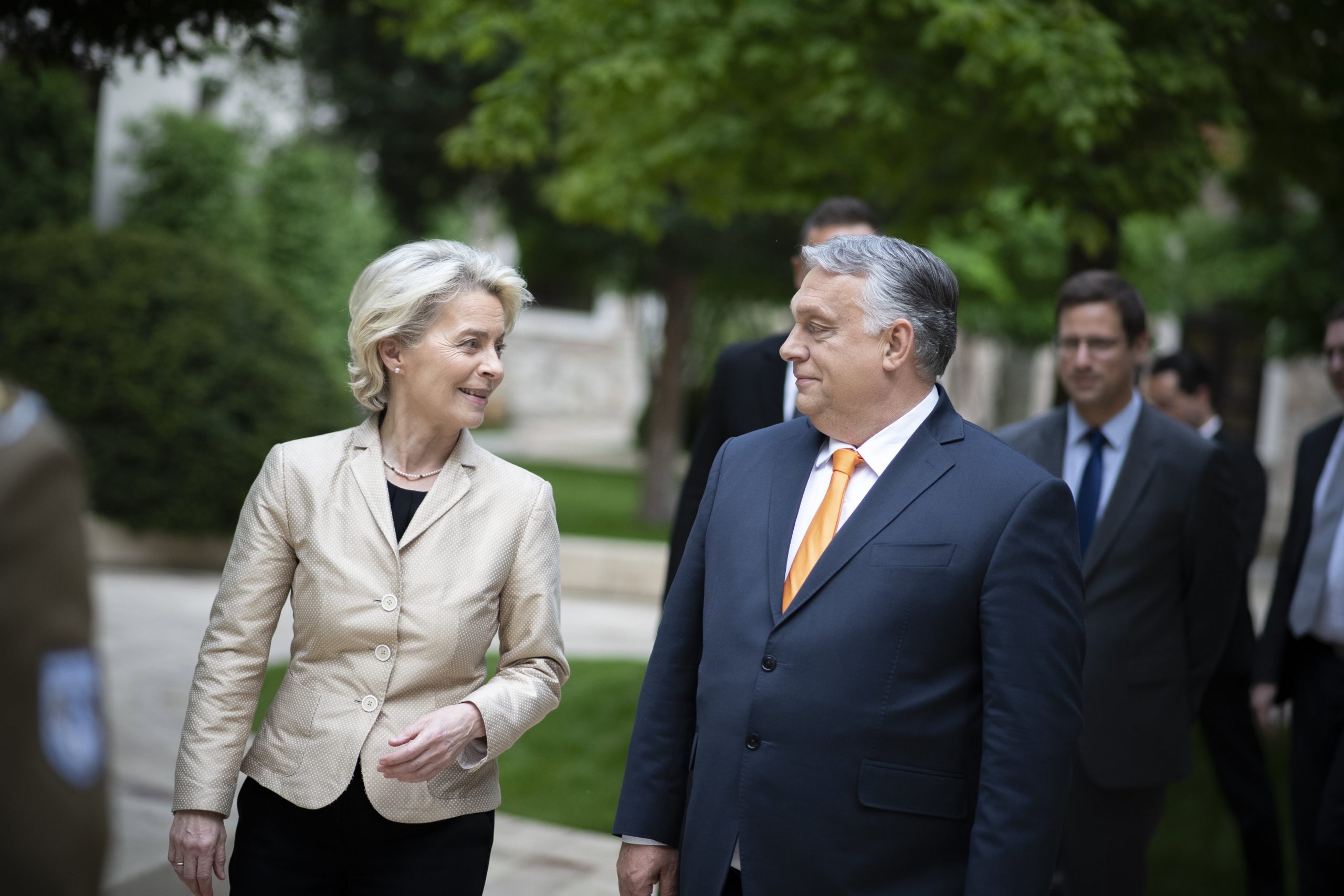
According to the MEPs, the country is unfit to take over the Council's rotating presidency. Continue reading

With less than a year to go until the European elections, the composition of the European Parliament will be decided, as well as the President of the European Commission. Currently, Ursula von der Leyen holds the post and several Member States have already indicated their support for her for the next term, but Hungary has a different opinion.
In an interview with Politico, Balázs Orbán, the prime minister’s political director, said that the Hungarian government’s support for Ursula von der Leyen is now no longer clear. “We were very supportive of her,” he said in an interview. “But now she is pushing her own political agenda without consulting Member States, on geopolitics, the relationship with the U.S. and China, on war issues, sanctions.”
Balázs Orbán argued that
under the presidency of von der Leyen, “the way the Commission is operating is not good for unity, it is divisive.”
He added: “They come up with a proposal and then put pressure on Member States to say yes.”
Meanwhile, another major sticking point between the European Union and Hungary is the withholding of EU funds. In this context, Balázs Orbán said that Brussels’ room for maneuver is getting narrower, and that they will have to give some positive signal to the government sometime in the near future.
Regarding next year’s EP elections, the government has high hopes, and the most important thing would be to secure a right-wing majority. This is exactly what Foreign Minister Péter Szijjártó talked about recently, saying that the government sincerely hopes that “after next year’s European elections we will be able to build a new right-wing majority in the European Parliament, because this is the hope for Europe to become a safe and developing continent again.”
According to Politico, Balázs Orbán suggested that Hungary’s ruling party Fidesz wanted to join a bloc of hard-right and center-right parties to secure a majority in the European Parliament, but admitted that Poland and Germany, where the center-right have ruled out cooperating with far-right parties, would be “a problem.”
Asked whether Fidesz MEPs would join the European Conservatives and Reformists Group (ECR), the political director said “this is one normal landing space for us.”
He added that “the problem is how the right and center right will cooperate after elections and get a majority. We want to support the right and cooperate with the center-right.”
Like many politicians, Balázs Orbán is optimistic about the outlook in the European Parliament elections.
I think we have a chance, I think it will be very close. In France, the right will win. In Italy, the right will win, in Germany, Austria, Hungary, Poland, the right is going to win, and those are the biggest countries. In Spain, it will be close. In all major countries some kind of right is going to win.”
On Ukraine’s accession to the European Union, Balázs Orbán indicated that the government could block accession because of the situation of Hungarian minorities in Ukraine. “The Ukrainian position on Hungarian minorities is just totally unacceptable,” he emphasized. ”Until this problem is solved we will not be able to support the EU enlargement process toward Ukraine. This is a rock solid position. If they want to be members of the EU, they should know better.”
“The Ukrainian position on Hungarian minorities is just totally unacceptable. Until this problem is solved we won’t be able to support the EU enlargement process toward UA. This is a rock solid position.”
Read my latest interview with @POLITICOEurope: https://t.co/MMAcULKBmd
— Balázs Orbán (@BalazsOrban_HU) September 4, 2023
Hungary wants Kyiv to return to the status quo in its treatment of national minorities, Balázs Orbán underlined.
[Hungary wants Ukraine to give] the same right for Hungarian minorities as they had before the start of the war. What they had was OK for us.”
The political director also touched on the issue of NATO membership for Ukraine, asking how it would be possible in the middle of a war. According to him, in the long term, there are serious concerns that would have to be addressed.
In connection with the same topic, on Sunday, Hungarian Minister Gergely Gulyás said that for lasting peace, “the Western world supporting Ukraine must give security guarantees to Russia, but certainly not NATO membership to the Ukrainians.” In the longer term, the deployment of peacekeeping troops and a myriad of similar solutions could ensure lasting peace in Ukraine, he concluded.
Featured photo via Miniszterelnök.hu/Miniszterelnöki Sajtóiroda/Benko Vivien Cher